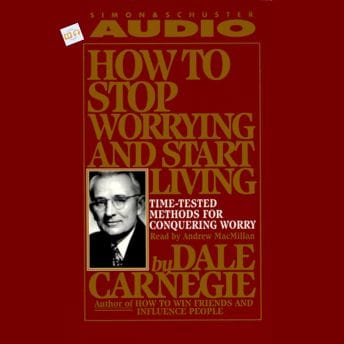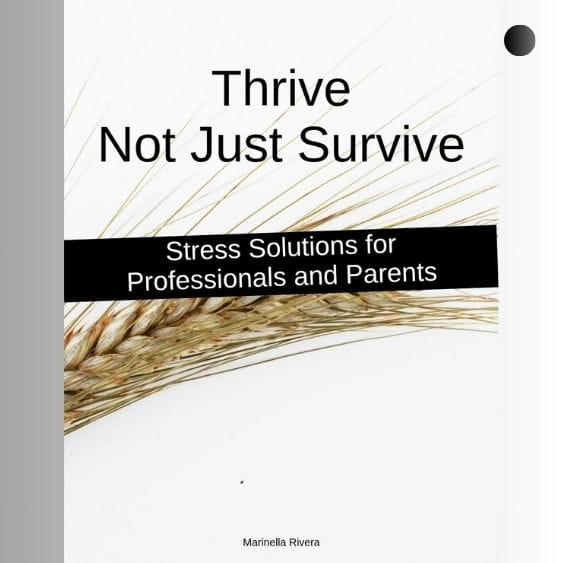Key Takeaways:
- Practical Techniques: Carnegie's audiobook offers actionable strategies to manage and reduce worry.
- Real-Life Examples: The book is filled with anecdotes and case studies that illustrate the effectiveness of these methods.
- Timeless Wisdom: Despite being written decades ago, the advice remains relevant and applicable today.
Introduction to Dale Carnegie's Wisdom
Dale Carnegie's "How to Stop Worrying and Start Living" is a treasure trove of practical advice aimed at helping individuals conquer worry.
This audiobook distills Carnegie's timeless wisdom into actionable steps that anyone can follow. Carnegie's approach is grounded in real-life examples, making his advice both relatable and easy to implement.
The audiobook is structured to guide listeners through a series of techniques designed to reduce worry and improve overall well-being.
Carnegie's methods are not just theoretical; they are backed by numerous anecdotes and case studies that demonstrate their effectiveness.
This makes the audiobook a valuable resource for anyone looking to improve their mental health and quality of life.
The Importance of Living in Day-Tight Compartments
One of the core principles Carnegie emphasizes is the concept of living in "day-tight compartments."
- This idea encourages individuals to focus solely on the present day, rather than worrying about the past or future. By compartmentalizing time, you can reduce the overwhelming burden of worry and stress.
Carnegie illustrates this principle with compelling stories of individuals who have successfully adopted this mindset.
- For example, he shares the story of a businessman who transformed his life by focusing only on the tasks at hand, rather than fretting about future uncertainties.
*This approach not only alleviates worry but also enhances productivity and mental clarity.
Techniques for Analyzing Worry
Carnegie introduces a systematic method for analyzing worry, which involves breaking down the problem into manageable parts.
*This technique helps individuals understand the root cause of their worries and develop effective solutions. By dissecting the problem, you can gain a clearer perspective and reduce the emotional impact of worry.
The audiobook provides several examples of how this analytical approach can be applied in various situations.
- For instance, Carnegie discusses how a manager used this technique to address workplace stress, ultimately leading to a more harmonious and efficient work environment.
**This method is a powerful tool for anyone looking to tackle their worries head-on.
The Magic Formula for Solving Worry Situations
Carnegie introduces a "magic formula" for solving worry situations, which involves three simple steps:
- identifying the worst-case scenario,
- accepting it, and then
- working to improve upon it.
This approach helps individuals confront their fears and develop a proactive plan to address them.
The audiobook is filled with stories of people who have successfully used this formula to overcome significant challenges.
- For example, Carnegie recounts the tale of a woman who faced financial ruin but managed to turn her situation around by following these steps.
*This formula is a practical and effective way to manage worry and take control of your life.
The Power of Positive Thinking
Carnegie emphasizes the importance of maintaining a positive outlook, even in the face of adversity ... He argues that a positive mindset can significantly reduce worry and improve overall well-being.
*By focusing on the positive aspects of any situation, you can shift your perspective and reduce the emotional toll of worry.

The audiobook provides numerous examples of individuals who have benefited from adopting a positive mindset.
- For instance, Carnegie shares the story of a man who overcame a serious illness by focusing on his recovery and maintaining a hopeful attitude.
*This section underscores the transformative power of positive thinking.
The Role of Rest and Relaxation
Carnegie highlights the critical role that rest and relaxation play in managing worry. He argues that taking time to relax and recharge is essential for maintaining mental and emotional health.
*By incorporating regular periods of rest into your routine, you can reduce stress and improve your overall quality of life.
The audiobook offers practical tips for incorporating rest and relaxation into your daily schedule.
- For example, Carnegie suggests simple activities like taking short breaks throughout the day, practicing deep breathing exercises, and engaging in hobbies that bring joy and relaxation.
*These strategies can help you create a more balanced and worry-free life.
The Benefits of Keeping Busy
Carnegie advocates for the benefits of keeping busy as a way to combat worry.
He argues that staying engaged in meaningful activities can distract you from your worries and provide a sense of purpose and fulfillment. By focusing on productive tasks, you can reduce the time and energy spent on worrying.
The audiobook includes several anecdotes of individuals who have successfully used this strategy to manage their worries.
- For example, Carnegie tells the story of a retiree who found new meaning and joy in life by volunteering and staying active in his community.
*This section highlights the importance of staying engaged and finding purpose in your daily activities.
The Value of Acceptance
Carnegie discusses the value of acceptance as a means of reducing worry.
He argues that accepting the things you cannot change can free you from the burden of worry and allow you to focus on what you can control.
*By embracing acceptance, you can achieve a greater sense of peace and contentment.
The audiobook provides examples of individuals who have found relief from worry through acceptance.
- For instance, Carnegie shares the story of a woman who learned to accept her chronic illness and, as a result, found new ways to enjoy life and maintain a positive outlook.
*This section underscores the liberating power of acceptance.
The Importance of Gratitude
Carnegie emphasizes the importance of cultivating gratitude as a way to combat worry.
He argues that focusing on the things you are grateful for can shift your perspective and reduce the emotional impact of worry. By practicing gratitude, you can enhance your overall well-being and create a more positive outlook on life.
The audiobook offers practical tips for incorporating gratitude into your daily routine.
- For example, Carnegie suggests keeping a gratitude journal, where you regularly write down the things you are thankful for.
*This simple practice can help you develop a more positive mindset and reduce the tendency to worry.
The Role of Humor
Carnegie highlights the role of humor in managing worry ... He argues that finding humor in difficult situations can provide relief from stress and create a more positive outlook.
By incorporating humor into your life, you can reduce the emotional burden of worry and improve your overall well-being.
The audiobook includes several anecdotes of individuals who have successfully used humor to cope with challenging situations.
- For example, Carnegie shares the story of a man who used humor to navigate a difficult work environment, ultimately leading to a more positive and productive atmosphere.
*This section underscores the therapeutic power of humor.
FAQ
Q: What is the main focus of Dale Carnegie's audiobook?
A: The main focus of Dale Carnegie's audiobook is to provide practical techniques for managing and reducing worry. The audiobook offers actionable strategies, real-life examples, and timeless wisdom to help individuals conquer their worries and improve their overall well-being.
Q: How does Carnegie suggest dealing with worry?
A: Carnegie suggests dealing with worry by living in "day-tight compartments," analyzing worry systematically, using a "magic formula" for solving worry situations, maintaining a positive outlook, incorporating rest and relaxation, staying busy, accepting what cannot be changed, cultivating gratitude, and using humor.
Q: Are the techniques in the audiobook applicable today?
A: Yes, the techniques in the audiobook are highly applicable today. Despite being written decades ago, Carnegie's advice remains relevant and effective for managing worry in the modern world. The audiobook's practical strategies and real-life examples make it a valuable resource for anyone looking to improve their mental health and quality of life.
The Takeaway
Dale Carnegie's "How to Stop Worrying and Start Living" offers a wealth of practical advice for managing and reducing worry.
The audiobook is filled with actionable strategies, real-life examples, and timeless wisdom that remain relevant today.
By adopting Carnegie's techniques, you can improve your mental health, enhance your well-being, and lead a more fulfilling life.
Disclaimer. When you purchase through links on our site, we may earn an affiliate commission (that's how we stay in business). FirstFewFinds may use affiliate links to products and services on retailer sites for which we can receive compensation if you click on those links or make purchases through them. We hope you find the list of our first few finds useful and helpful. Each product on our list has been carefully chosen by our writers and all opinions are our own. Check your choices and enjoy finding exactly what you need!








